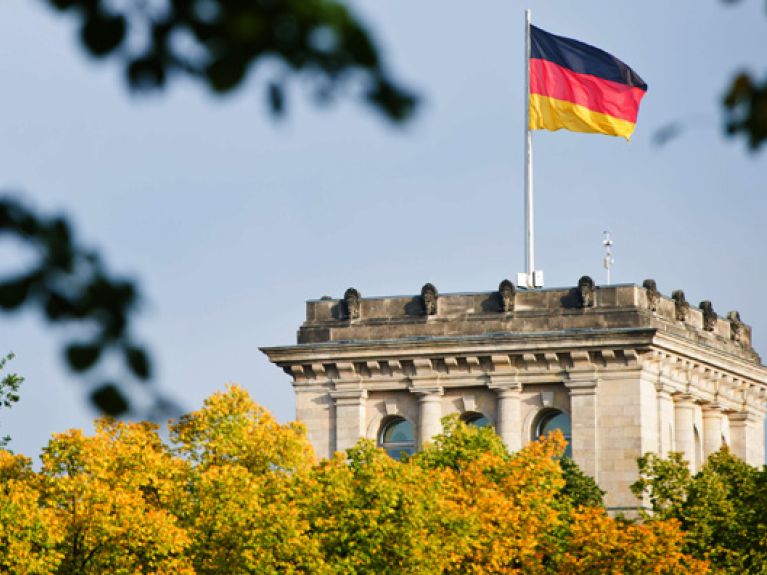The new Bundestag
The 631 members of parliament in the new Bundestag are convening for the first time in Berlin.

On Tuesday, 22 October 2013, the new parliament will convene at the Reichstag in Berlin for its constituent session. This is its first meeting following the federal elections on 22 September 2013. Items on the agenda include the election of the Bundestag President and the other members of the Presidium as well as passing the rules of procedure of the German Bundestag.
The CDU/CSU emerged as the clear winners of the federal election. The Christian Democratic Union (CDU) of the current Federal Chancellor, Angela Merkel, and its sister party the Christian Social Union (CSU) have a total of 311 out of 631 seats in the 18th Bundestag. The second strongest group in the house is the Social Democratic Party of Germany (SPD) with 193 seats. The new Bundestag also has delegates from the Left Party (64 seats) and the Alliance 90/The Greens (63 seats). The CDU/CSU is currently negotiating with the SPD on the formation of a grand coalition. In the event of this coalition being formed, the Chancellor would then be elected (probably at the beginning of December). This would leave a numerically weak opposition from two parties amounting to 127 out of 631 seats (20 per cent). Notably, for the first time in the history of the Federal Republic of Germany, there will be no liberal representatives from the Free Democratic Party (FDP) in the Bundestag.
The composition of the new parliament reveals some interesting figures and personalities. Women account for 36 per cent of the members. They are most prevalent in the SPD group with 40 per cent. Meanwhile, the proportion of parliamentary delegates with a migration background has risen to five per cent. Seen in relation to the number of their seats, the Greens have the highest proportion in this respect with 11 per cent. But both the proportion of women and that of members with a migration background remain below the corresponding percentage in the general population. Cem Özdemir (chairman of the Greens), who entered the Bundestag in 1994 as the first member of parliament with Turkish roots, has been re-elected again. His unrelated namesake, 26-year-old Mahmut Özdemir (SPD), is the youngest member of the new parliament. Karamba Diaby (SPD) and Charles M. Huber (CDU) are the first two politicians of Afro-German origin to be voted into the Bundestag. The oldest member of parliament is 78-year-old Heinz Riesenhuber (CDU). As the President by age, he will be heading the constituent assembly.
